Bone Density Foods
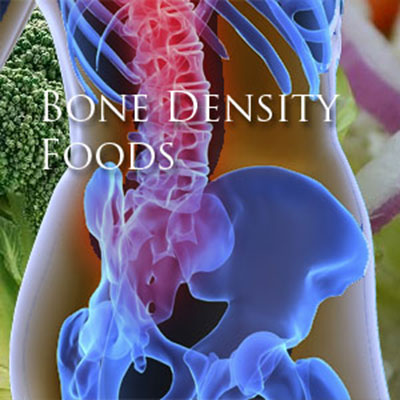
Imagine a human body minus bones. It would be a shapeless blob of tissue unable to keep its shape. But, the role of bones is not limited to the function of giving the body its shape. The 206 bones are needed for a variety of functions within the body such as protection, movement, support, blood cell production and regulation of calcium levels which explains the importance of healthy bone density across different life stages. Learn more about bone density and foods that help in improving bone density over time.
Frail and weak bones
Look at the other side, ill-effects of having frail and weak bones:
- Risk of fracture increases specifically in wrist, spine and hip.
- Sneezing, bending and stepping can cause a bone to break.
- Impacts body posture bringing on conditions such as stooped shoulders.
- Affects quality of life, losing ability to walk, stand and dress.
- Doing simple every day activities can be stressful and painful.
- In extreme cases, it may lead to long-lasting health problems, disability or even death.
Determine bone density
Determining bone density gains importance when people understand that weakening of bones is a normal aging process. Bones reach maximum mass between the ages of 25 and 35. In women, it remains constant till menopause and starts to shrink in size and density during the later stages. Post menopausal women undergo rapid bone loss during the first five years. Irrespective of the gender, loss of bone density and strength is inevitable and begins in the 40s. Though men do not experience similar hormonal changes and tend to have larger and denser bones than women, men also begin losing bone mass later in life.
Besides the age factor, sedentary lifestyle, smoking, drinking excessive alcohol, medications and an unbalanced diet, conditions like diabetes, kidney disease, liver disease and family history of osteoporosis can cause an aging person's bones to become less dense and strong.
Measure bone density
There are different ways to measure bone density. A special X-ray or computed tomography (CT scan) procedure helps estimate the strength of bones.
Bone density indicates bone strength. When a bone density test is done, the amount of minerals (such as calcium) contained in a cubic centimeter of bone is measured. The higher the bone mineral content, the denser the bones are. And the denser the bones are, the stronger they generally are and less likely to break. If the bone density is lower than normal, steps should be taken to increase bone strength.
Foods to improve bone density
A natural and effective way to maintain bone density is to include bone density foods into your daily diet. Here is a list that would help in planning your meals better. Prepare nutritious meals that will help you enjoy good health, prevent bone density loss and reap benefits that contribute to healthy bone density.
Onions and bone density: Integrate onions into meals and salads, they boost bone health. Onions contain a flavonoid called quercetin. The flavonoids in onions help prevent the cells that are known to break down bones and even help stimulate bone building cells, thus increasing bone density. Scallions, shallots, leeks or the regular bulb onions - include them in your daily diet.
Friendly minerals: Most often, the foods we eat lack certain minerals essential for bones. These minerals not only contribute to bone development, they help in maintaining bone density as well. Deficiencies in these minerals may result in loss of bone density and contribute to development of bone disorders such as osteoporosis. Ensure that your diet meets the dietary recommendation for specific minerals.
Calcium: Calcium is an essential bone-building mineral. Most of us do not get enough calcium through food sources. Loss of bone calcium impacts bone density. To reverse bone calcium loss, increase the amount of calcium consumed per day. Include good sources of calcium like milk, cheddar cheese, yogurt (from skim milk), cod (pan fried), mackerel (canned), sardines (canned), oranges, black strap molasses, almonds, sesame seeds, broccoli, spinach, kale and turnip.
Phosphorous: Calcium needs phosphorous and magnesium so as to be absorbed properly. Phosphorous works in tandem with calcium to build strong bones and teeth. Absorbed phosphorous also aids in cell repair, muscle contraction, kidney functions and heartbeat regularity. Men and women over 30 years need a minimum of 700 mg of phosphorus each day.
A varied diet rich in protein and dairy products meets the required dietary guidelines. Include meats, eggs, milk, yogurt and cheese. Lentils and nuts also contain phosphorus. Other foods high in phosphorus include bacon, bran (rice and oats), pumpkin, squash and watermelon seeds, sunflower seeds, toasted wheat germ, sesame seeds and tahini (sesame butter) roasted soybeans and flax seeds.
Vitamin D: Vitamin D facilitates calcium absorption in the body. Foods rich in vitamin D include fish oil, liver, eggs, oily fish such as sardines, mackerel, salmon and tuna, dairy products that have been fortified with vitamin D, such as milk, and cereals that have been fortified with vitamin D. Besides foods, another way to get Vitamin D is through exposure to sunlight for at least 15 minutes twice a week.
Vitamin K: This vitamin limits the excretion of calcium thereby helping to maintain optimum blood calcium levels. Found in plenty in leafy greens, broccoli, green beans and Brussels sprouts, Vitamin K is also found in cheese, cranberry juice and green tea.
Iron: Iron deficiency can lead to reduced bone density. When eating iron rich foods, for the body to absorb iron, combine it with foods containing Vitamin C.
Vegetables rich in Iron: Spinach, turnip greens, collard greens, Kale cabbage, mustard greens, broccoli, green beans, lima beans, beet roots, peas, potato, Swiss chard, asparagus, parsley, watercress, watermelon, corn, Brussels sprouts,
Legumes rich in Iron: Kidney beans, lima beans, navy beans, black beans, pinto beans, lentils and soybeans.
Seeds rich in Iron: Sunflower seeds, soy milk, chickpeas, tofu, soy burger, cooked spinach, pumpkin seeds, pistachios.
Meat products rich in Iron: Seafood- oysters, clams, tuna, salmon and shrimp, chicken and turkey, liver, sardines, beef and meat and chicken liver.
Magnesium: Studies indicate that magnesium is directly related to maintaining bone health.
Dairy products: Milk and yogurt.
Vegetables and fruits rich in magnesium: All green vegetables are rich in magnesium. Artichokes, beet greens, broccoli, plantains, spinach, potato are particularly rich in magnesium.
Legumes rich in magnesium: Cow peas, black beans, lima beans, kidney beans, soy beans.
Seeds and soy rich in magnesium: Peanuts, pumpkin seeds, seeds of squash, tofu, Brazil nuts, cashews, almonds, macadamia and cacao.
Grains/Cereals rich in magnesium: Oat bran, brown rice, barley, whole-grain cereal, whole-grain cornmeal.
Seafood rich in magnesium: Scallops.
Zinc: Zinc deficiency is linked to poor bone growth. Zinc should be taken with meals but not along with dairy products, since calcium may inhibit the absorption of Zinc. The best food sources of zinc are beans, whole grains, dairy products, raw nuts and seeds, shellfish, poultry, oysters, crab, lobsters and red meat. A diet rich in whole foods will greatly enhance absorption of zinc.
Boron: Boron is a trace mineral that contributes to bone density by supporting the functions of calcium, magnesium, phosphorus and Vitamin D in bone metabolism, growth and development. Boron also reduces calcium loss in urine. Fruits like pears, prunes, apples, nuts like raisins and vegetables like tomatoes and soybeans are rich sources of boron.
Vitamin C: This wonder vitamin is vital for preparation of collagen, essential for muscles and blood vessels. Recent studies have shown that Vitamin C may play a positive role in retaining bone density in older men. For renewed bone mineralization, the body needs derived omega 3 and omega 6 fatty acids.
Points to remember
A few simple changes in your diet as well as exercise routine can go a long way in aiding bone health.
- Limit foods that may harm bone health. Eating too much fiber, salt in processed foods, coffee, tea and alcohol can reduce the amount of calcium the body retains.
- Limit consumption of carbonated beverages as it can deplete calcium in bones due to the presence of phosphoric acid. Instead opt for carbonated mineral water with a slice of orange.
- If you take calcium supplements, foods containing wheat bran should be eaten at least two hours before or after taking the supplement as it can reduce the absorption of calcium.
- Weight bearing exercises are beneficial for bone health. Get 30-40 minutes of weight-bearing exercises at least 4 days a week.
- Racquetball, dancing, jogging, stair climbing, hiking and walking help in building strong bones.
Strength training has been proven to be effective for increasing bone mass, especially spinal bone mass. When muscles are pulled or stressed against the bone, it makes for a stronger bone. It also aids new bone manufacture. During strength training, you must work on different muscle groups. It is best to embark on a strength training routine before your journey into the menopause. Work muscles against gravity for better results.
Top of the Page: Bone Density Foods
Tags:#bone density foods #improving bone density #preserving bone density #increase bone density naturally
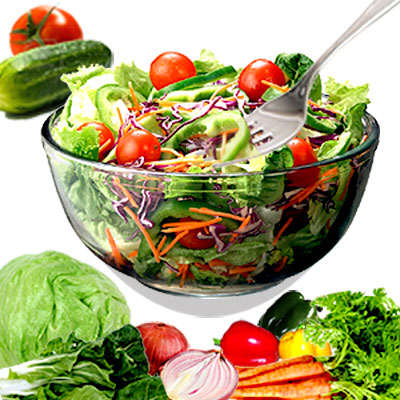 Food and Nutrition Facts
Food and Nutrition Facts Chamomile
Parsnip Soup
Dim Sum
Gazpacho Soup
Whole Grain Cereal
Jicama Nutrition
Bok Choy Stir Fry
Chia Seeds Benefits
Teff Nutrition
Kaniwa
Flax Seed
Wheatgrass Benefits
Kelp Benefits
Types of Chili Peppers
Medicinal Benefits of Pomegranate
Arugula Leaves
Maca Root
Pitaya Fruit
Benefits of Celery
Leek
Asparagus Benefits
Oyster Stew
Oyster Mushroom
Lupin Beans
Quinoa
Freekeh
Extra Virgin Olive Oil
Dill Pickle
Sauerkraut
Fat Burning Foods
Nutrition Chart
Food Combining
Calorie Counter
calories ...
Non Alcoholic Beverage
Punch Recipes
Food Label Nutrition
Homemade Sausages
Cooking Steak
Eating on a Budget
Budget Friendly Recipes
Quick Recipes
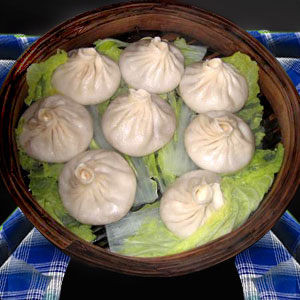 Healthy Packed Lunch
Healthy Packed Lunch Overnight Oats Recipes
Eggplant Casserole
Brunch Recipes
Burrito Recipes
Muffin Recipes
Cupcake Frosting
Apple Crisp
Stir Fry Cooking
Seafood Salad Recipe
Cooking Corn on the Cob
Finger Food Recipe
Sandwich Recipe
Bread Stuffing Recipes
Easy Chili Recipes
Picnic Recipes
Edible Mushroom Recipes
Mushroom Soup Recipes
Dip Recipe
Tapas Recipe
Corned Beef Recipe
Canned Salmon Recipe
Tilapia Recipes
Crumb Cake
Flourless Chocolate Cake
Regional Food
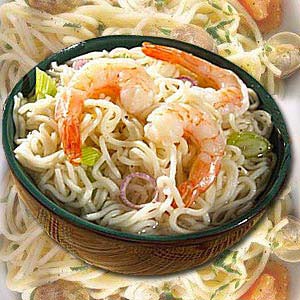 Lasagna Recipe
Lasagna Recipe Peruvian Ceviche
Chinese Food Recipe
Vietnamese Food Recipe
Malaysian Food
Korean Food Recipe
Indian Curry Recipe
Edible Rice Paper
Mexican Food Recipe
Quesadilla
Guacamole Dip
Italian Food Recipe
Spanish Food Recipe
Kosher Food
Falafel Recipe
Tandoori Chicken
Noodles
Canape
Couscous
Meatloaf
Chowder
Gumbo Recipe
Crockpot Recipes
Moroccan Food
Healthy Food
Pre Workout Snack
Matcha Tea
Simple food Swaps to Lose Weight
Foods to Beat Stress
Foods to beat Insomnia
Bone Density Foods
Prebiotic Foods
Kefir Grains
Agave Nectar
Spicy Trail Mix
Pesto Sauce
Homemade Hummus
Crab Cake Sauce
Bamboo Shoots Nutrition
Lemon Grass Plant
Butter Beans Recipes
Loose Green Tea
Seaweed Nutrition
Healthy Food
Low Fat Granola Bar
Steel Cut Oatmeal
Fruit Pizza
Pizza Toppings
Green Smoothie
Healthy Meal Planning
Delicious Mealtime Recipes
Heart Healthy Fats
Healthy Heart Recipe
Healthy Dinner Recipe
Healthy Dessert Recipe
Healthy Fast Food
Healthy Kid Recipe
Probiotic Food
Diabetic Friendly Foods
Fruit Salad Recipe
Bread Pudding
Tofu Recipe
Oat Bran
Broccoli Salad
Avocado Recipe
Iron Rich Food
Brain Foods
Antioxidant Food
Natural Diuretic
Low Fat Cooking Tips
Rice Pilaf Recipe
Low fat Chicken Recipe
Food Tips
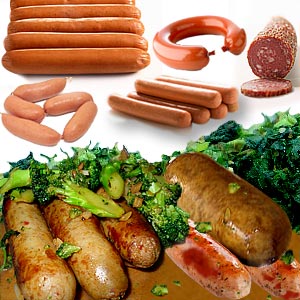
Sous Vide Cooking Technique
Natural Sugar Substitute
Stevia Sugar Substitute
Sunflower Seeds Nutrition
Bouquet Garni
Cake Decorating Tips
High Satiety Foods
Thanksgiving Dinner
Safe Food Storage
Frozen Food Storage Tips
Cold Storage Food Tips
Leftover Recipe
Food Pyramid
Dairy Free Food
Microwave Cooking
Food Intolerance
Homemade Ice Cream
Apple Cider Vinegar
Benefits of Honey
Beverage Cooler
Food Poisoning Symptom
Food Allergy Symptom
Food Addiction
Top of the Page: Bone Density Foods
Popularity Index: 101,231

